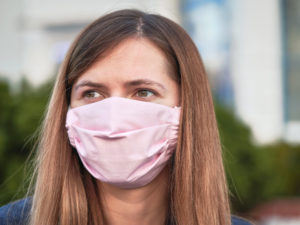 As more North Americans are regularly donning face masks upon leaving their homes, it may have come with a striking realization: your breath isn’t as fresh as you thought it was.
As more North Americans are regularly donning face masks upon leaving their homes, it may have come with a striking realization: your breath isn’t as fresh as you thought it was.
It’s one thing to catch the occasional whiff of a friend or colleague with chronic halitosis, but it hits a little harder when it’s your own, does it not?
Advertisement
So, why does your breath stink? Halitosis – the official name for bad breath – can originate both inside and outside of the mouth. It’s generally caused by bacteria and debris on your tongue or your teeth, which can usually be fixed with better oral hygiene.
Some conditions affect your salivary glands, making it hard to keep your mouth moist and boost the likelihood of an unpleasant odor. In some cases, there can be issues with your gastrointestinal/digestive system, and adopting a healthier diet may help.
Most severely, bad breath can also appear as a symptom of advanced liver or kidney disease, or uncontrolled diabetes. Of course, if your breath was a result of one of these conditions, you’d likely be experiencing some other severe symptoms.
Perhaps unsurprisingly, diets that contribute to other health issues like indigestion and inflammation can influence breath. High sugar and high acid diets can promote a strong odor, and cutting back on these items may make a difference.
Advertisement
Lastly, if you’re on a ketogenic diet for weight loss of blood sugar management, you may experience bad breath. Ketones have a strong aroma that can be expressed through your breath.
If your face mask has woke you up to the realization that your breath leaves something to be desired, consider the above factors.
Boost oral hygiene and pay attention to the foods you eat regularly. If that doesn’t help, contact your dentist.
